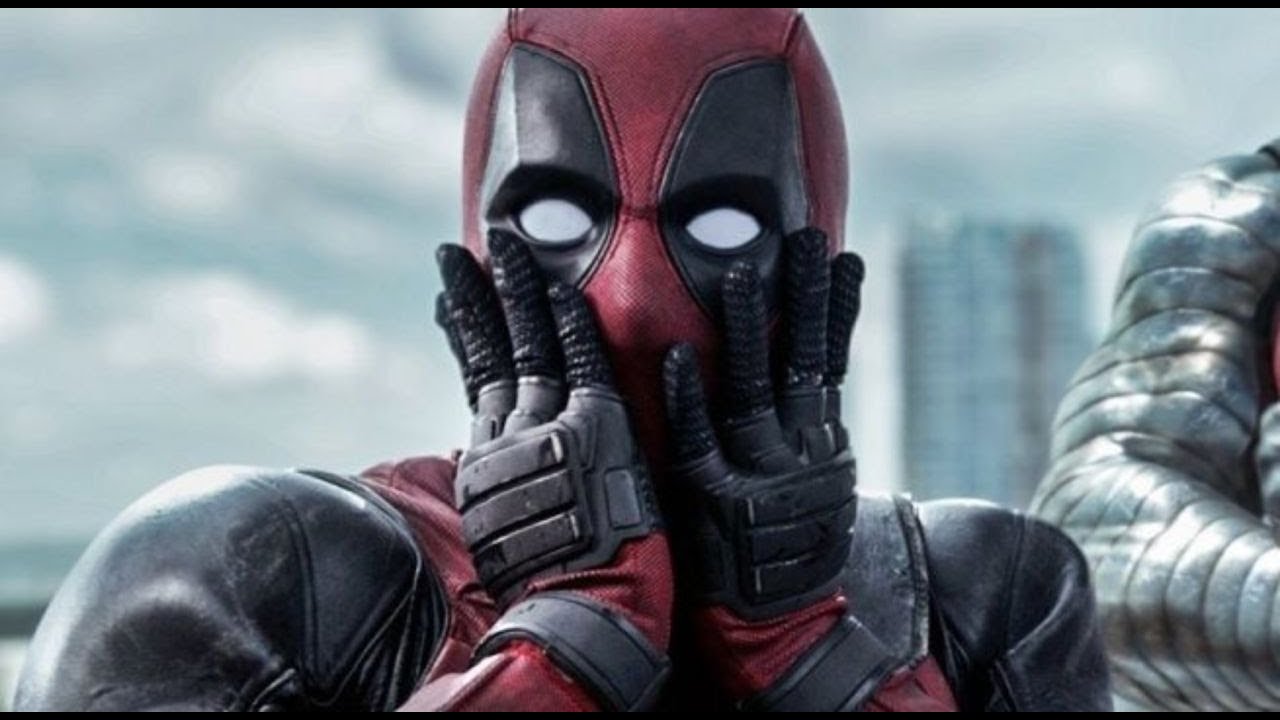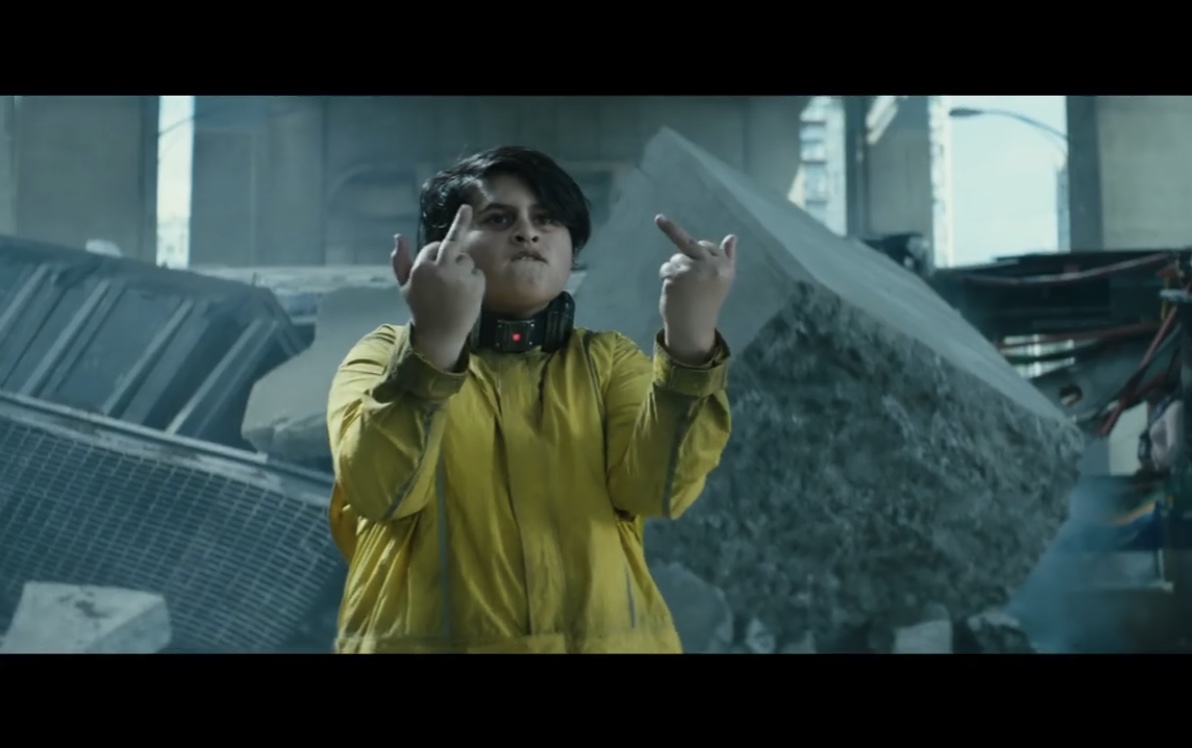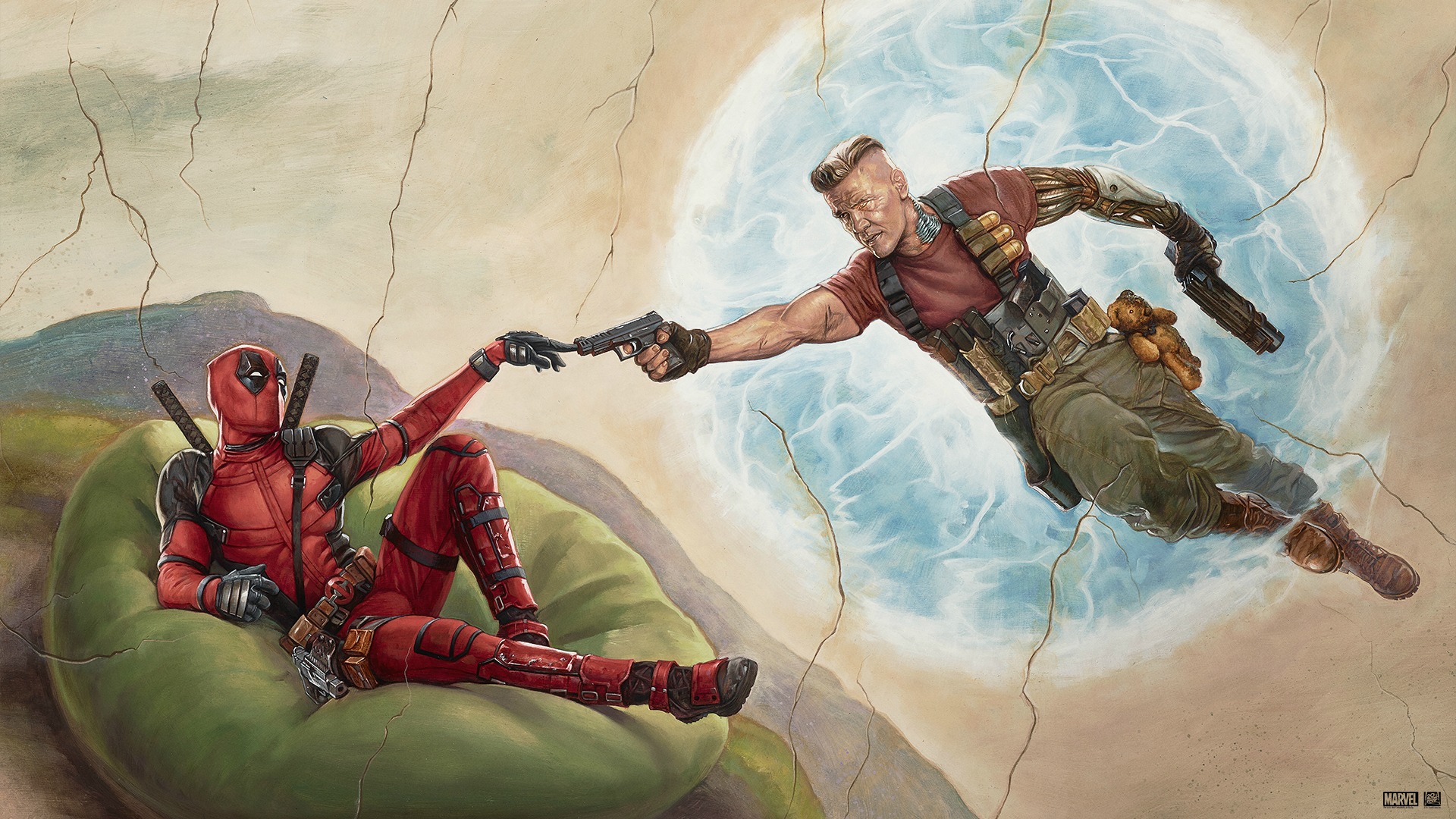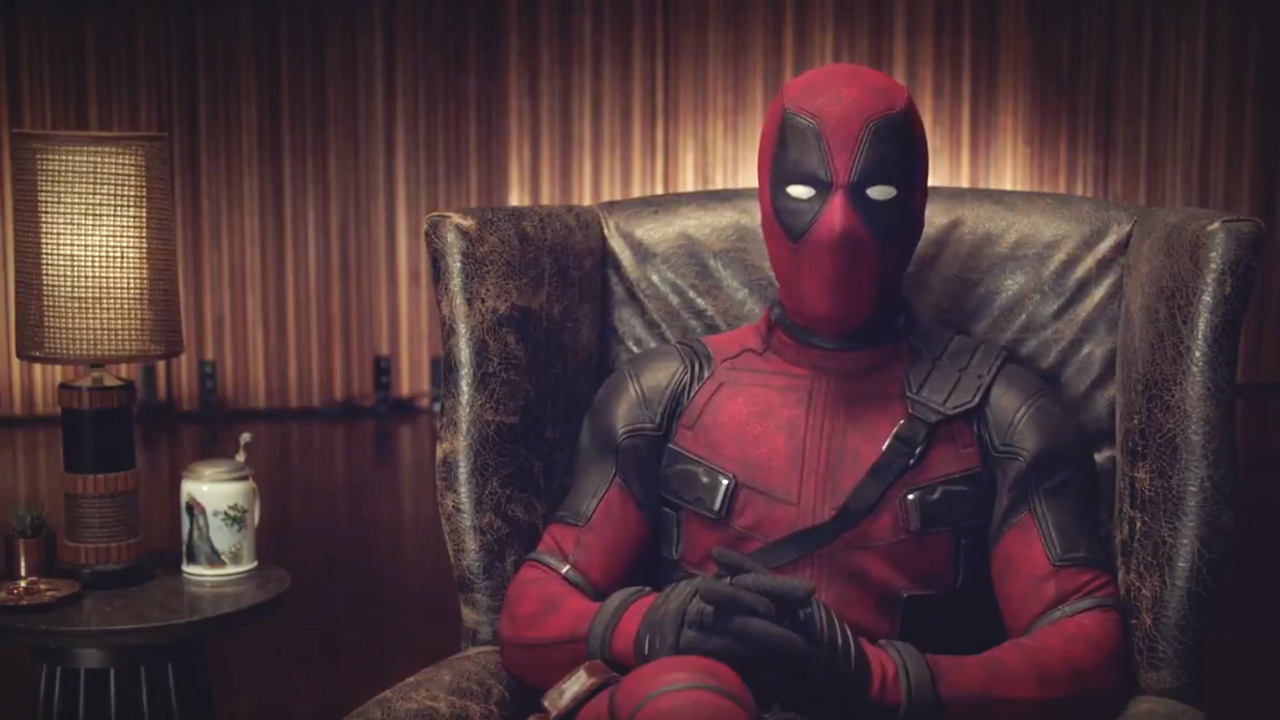There is another Deadpool movie in the world now.
It may have a new director — David Leitch, co-director of John Wick and director of Atomic Blonde (and, uh, Terry Bogard in the King of Fighters movie) — but the tone is exactly the same as the first one: an emulsion of an achingly sincere story about revenge and family suspended in a hyperviolent, nihilistic action-comedy.
Deadpool (Ryan Reynolds plays the character, although he and the film reflect each other so exactly that it’s almost pointless to differentiate) is a Hot Topic store come to life, a katana-wielding mercenary whose only real superpower is, like his fellow Weapon X experimentee Wolverine, the ability to regrow and recover from any injury.
He also can break the fourth wall. The film starts with him interrupting a suicide attempt to complain that Logan stole his thunder by killing himself first; it ends with him travelling through time to murder the weird silent Deadpool from X-Men Origins: Wolverine, and then to shoot Ryan Reynolds in the head before he can star in Green Lantern.
 Does that mean anything to you? Does the idea of Deadpool referring to Cable, the antagonist-then-partner played by Josh Brolin, as Thanos sound like enough for you to spend two hours with a movie? Does the idea of Deadpool saying that Domino’s (Zazie Beetz) superpower, that she’s “really lucky”, is so stupid it must have been thought up by a “guy who can’t draw feet” (a dig at the creator of both Domino and Deadpool, the infamously terrible creator Rob Liefeld) mean anything?
Does that mean anything to you? Does the idea of Deadpool referring to Cable, the antagonist-then-partner played by Josh Brolin, as Thanos sound like enough for you to spend two hours with a movie? Does the idea of Deadpool saying that Domino’s (Zazie Beetz) superpower, that she’s “really lucky”, is so stupid it must have been thought up by a “guy who can’t draw feet” (a dig at the creator of both Domino and Deadpool, the infamously terrible creator Rob Liefeld) mean anything?
Then Deadpool 2 is absolutely the movie for you. I’m not judging. We are all fated either to be the kind of person who would watch Deadpool 2 or the kind who will resist it to the death; on the LR team, we all know that I’m the former and Rick is the latter.
And it is, in bits, terrifically fun in a meaningless, video game-y way. Leitch is incapable of making it through a film without at least one terrific action sequence, and there are a few here and there, in particular a segment in which Deadpool and Domino attempt to rescue the young mutant Firefist, around whom most of the plot fixates (Julian Dennison from Hunt for the Wilderpeople), from a prison truck.
 The weirdest thing about the movie, though, is that emulsion structure. Everything about the Firefist plot is intensely sincere. Cable has come back from the future to kill Firefist, who was arrested on his way to kill the people who abused him at an orphanage as a kid; in the future, Cable says, he becomes addicted to murder and kills Cable’s family. Deadpool, inspired by the dying words of his girlfriend (Morena Baccarin, who, like Cable’s wife and daughter, is immediately killed off to motivate men; it’s astonishing the writers can be so aware of comic books and be unaware of the phrase “stuffed in the fridge”), tries to keep him from turning into a murderer.
The weirdest thing about the movie, though, is that emulsion structure. Everything about the Firefist plot is intensely sincere. Cable has come back from the future to kill Firefist, who was arrested on his way to kill the people who abused him at an orphanage as a kid; in the future, Cable says, he becomes addicted to murder and kills Cable’s family. Deadpool, inspired by the dying words of his girlfriend (Morena Baccarin, who, like Cable’s wife and daughter, is immediately killed off to motivate men; it’s astonishing the writers can be so aware of comic books and be unaware of the phrase “stuffed in the fridge”), tries to keep him from turning into a murderer.
We can see all the beats here coming even from before most of these characters are introduced, though, when Deadpool opens the film announcing he’ll sacrifice himself for someone by the closing credits (and, in turn, referencing a bunch of other movies that pull the same move, a joke that was old when Kick-Ass did it eight years ago).
And it’s that push and pull that makes Deadpool 2 so weird. It pulls the same joke as MacGruber, spending five minutes setting up a special ops team for a dangerous mission, only for them all to die immediately and horrifyingly. But unlike MacGruber, it also tries to tell an emotionally sincere story about revenge — a story so cliched that it itself references other movies that have done it.
It seems weird to say that because of all of this, I found the experience of watching Deadpool 2 very comforting — for completely personal reasons. Rick and I have been taking the summer kind of slow. For my part, a lot of that is because for the last six months or so, I’ve found writing about art really hard.
Maybe this sounds weird, but I feel like our media culture is antipathetical to writing about movies. There are a million places where we can get recommendations to watch something: if you like x, then you should try y, a move I’ve already done in this very article. And there are plenty of places that will tell you what you should be watching, a bizarrely ethical statement that doesn’t make a ton of sense.
But it feels like most of these reviews are just like scoring a commodity. We can rate a film in the same way we would rate any other experience: did it give us enough pleasure to justify the time and/or money spent? The only judgment we can pass on any particular work is the quality or intensity of the fantasy; there’s not a lot of room to say that we should think about whether one fantasy world is more worth spending time in than another.
It may be that I’m imagining this entire thing, of course, but I think any peek into an AV Club comments section will confirm something like what I’m saying. I find all this a little depressing. For me, art doesn’t mean anything unless it relates in some way to real life. Talking about the qualities a fantasy world has is valuable not just to say that you should be fantasizing one way or another — that’s just another kind of commodity-thinking, except figuring out which commodity you can experience to turn yourself into the best person.
Talking about media on that second level, the one that bridges “real life” and the narrative-world, is important to me because sifting through those experiences and understanding my own emotions makes me, I think, a better person — and, I imagine, other people better people, too. That’s what I worry is missing: any idea that art and real life can share structures.
 Why am I talking about any of this in relationship to Deadpool 2? Because to me, the double position of Deadpool, as sincerely emotional figure within the narrative and sarcastic joker outside the narrative, reflects a need for that kind of second-level conversation about the narrative world. And if a film like this needs so desperately to comment on itself, then that makes me start to believe that the current antipathy to that kind of commentary is not a new, less human world emerging or the final success of capitalism over art.
Why am I talking about any of this in relationship to Deadpool 2? Because to me, the double position of Deadpool, as sincerely emotional figure within the narrative and sarcastic joker outside the narrative, reflects a need for that kind of second-level conversation about the narrative world. And if a film like this needs so desperately to comment on itself, then that makes me start to believe that the current antipathy to that kind of commentary is not a new, less human world emerging or the final success of capitalism over art.
It makes me think instead that the absence of that kind of conversation is a suppression or repression, one we are doing to ourselves, one that, if I am right, we will eventually grow out of.
It seems to me that all of our obsessively self-referential fantasy worlds, all of these worlds that comment on themselves and other works by borrowing aesthetics — all the 1980s-aping films and TV of the last few years, for example — or by direct reference. If I’m not wrong, I see a media culture that is longing to talk about its experiences on a level that is not merely the amount of pleasure wrung out of it.
Maybe this is all profoundly pretentious, especially to (to re-use the metaphor) wring out of Deadpool 2. But I do think there is a yearning for a more full artistic world present in Ryan Reynold’s latest, and it gives me a little bit of hope.

